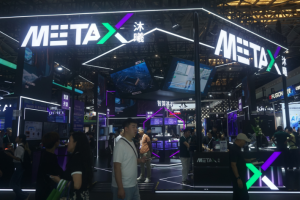Manufacturing companies are scaling back their plans to deploy to Generative AI initiatives amid increasing worry about the models sharing inaccurate information, a new study found.
In a survey of 2,500 global business leaders, tech firm Lucidworks found that 58% respondents from the manufacturing industry planned to increase their AI spending this year.
That was far lower than 2023, when 93% of manufacturing leaders said they planned to increase spending on AI.
Also on AF: AI is ‘Effectively Useless,’ Veteran Analyst Warns
Overall, 63% of global leaders said they were planning to increase their spending on AI, lower than a 93% from last year.
A major cause of concern of the respondents were GenAI ‘hallucinations’ or inaccurate or nonsensical outputs generated by the models.
Of all respondents, 36% told the study they were concerned about response accuracy due to hallucinations.
Worry about AI hallucinations reached their peak in May this year after Google rolled-out its much-anticipated chatbot Gemini. Within a week, users flooded social media with screenshots of the chatbot’s nonsensical responses, like suggesting users to eat ‘one rock per day’ or adding glue to pizza sauce to make cheese stick.
Those errors from Gemini are of even more significance considering Google’s carbon emissions have shot up 48% over the past five years due to energy demands of its new artificial intelligence products.
“Each time you search for something like ‘how many rocks should I eat’ and Google’s AI ‘snapshot’ tells you ‘at least one small rock per day,’ you’re consuming approximately three watt-hours of electricity… ten times the power consumption of a traditional Google search” https://t.co/58NcvTYUf2
— Mar Hicks (@histoftech) June 23, 2024
Boons and banes
Over the past year, 70% of manufacturing companies opted for more expensive commercial AI models. But a shift to more accessible open-source models could occur if they prove to be as efficient and more resourceful at a lower cost, Lucidworks said.
While manufacturers are optimistic about the cost benefits of AI, they aim to maximise its value amid smaller planned spendings this year.
“While many manufacturers see the potential benefits of generative AI, challenges such as response accuracy and cost are causing them to take a more cautious approach,” said Mike Sinoway, CEO of Lucidworks on Wednesday.
The data comes a time when investors are stepping up funding of AI startups with the hope that revenue from the technology’s adoption will yield significant returns.
“Investors assign a premium to everything AI – the capital intensity of most AI businesses requires outsized funding,” Casber Wang, partner at Sapphire Ventures, told Reuters last week.
- Reuters, with additional inputs from Vishakha Saxena
Also read:
AI Could up Profits But Also Disrupt Banking: Citi Report – M’place
China Far Ahead of the US in Generative AI Patents
Returns From AI Projects ‘Dismal’, Survey Finds – Register
Generative AI Seen Having Big Impacts on Environment – Nature
AI Could Pass Human Tests This Decade, Says Nvidia Chief
AI Hitting Job Markets Like a ‘Tsunami’, Says IMF Chief
Fears Rising on Impacts From Unrestrained AI Projects
























